Why are so many children trying to cross the US border?
- Published
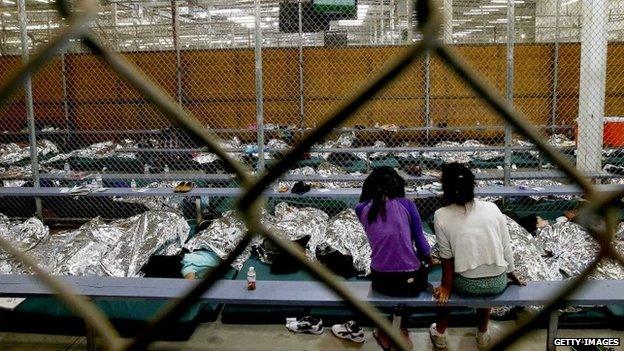
Two young girls watch a World Cup football match on a television from their holding area while others sleep
President Barack Obama is under pressure to fix the immigration crisis growing on the south-west border of the United States, as thousands of children enter the country unaccompanied.
The crisis has pushed a simmering debate about immigration into the US back into the spotlight as the US border system creaks under the strain.
The issue has become a political cudgel on both sides as the president and the Republican opposition argue over how to respond and the root causes of the crisis.

What is happening?
Thousands of children have been caught trying to illegally cross the south-western American border after migrating from across Central America.
According to the US Department of Homeland Security, 52,000 unaccompanied children have been apprehended since October. President Barack Obama has called the issue a "humanitarian crisis".
Many children are being held in crowded detention centres, including makeshift warehouses, while US officials struggle to hold deportation hearings fast enough.
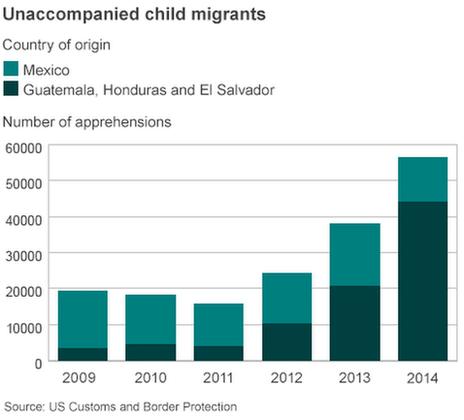

Why is it happening?
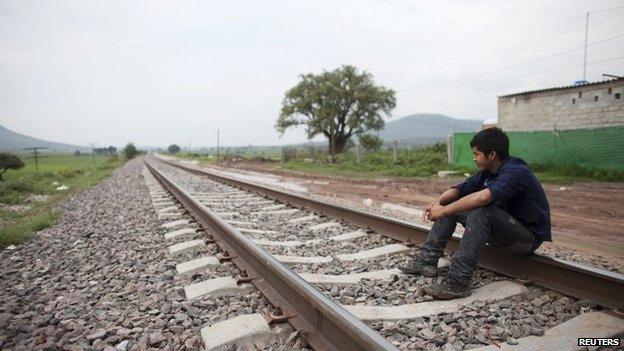
Many children are making the dangerous journey to the US alone
Immigration to the US from Mexico and Central America has long been driven by economic difficulties and violence in home countries.
But a recent spike of gang and drug-related violence in Guatemala, El Salvador and Honduras has increased the flow of migrants from those countries.
Critics of the Obama administration also point to a US policy that allowed some who had previously arrived in America illegally to stay without the fear of deportation. But newly-arrived children are not eligible.
And lengthy deportation processes, especially when children are sent to wait with relatives already in the US, have contributed to the belief that some are being allowed to stay permanently.
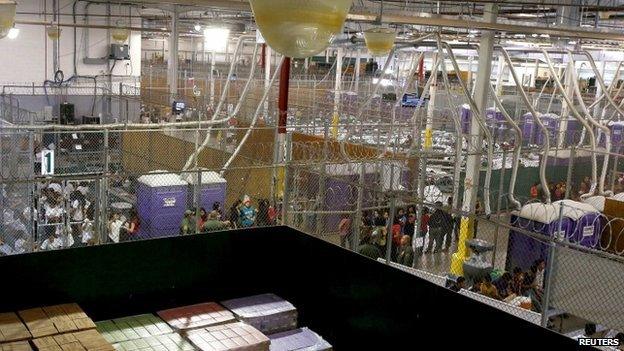
Children are separated into age and gender holding areas at the Nogales centre
The White House has argued those who transport children across the border for a fee have abused such misunderstandings to drum up business.
"The criminal smuggling organisations are putting out a lot of disinformation about supposed free passes," homeland security Secretary Jeh Johnson told broadcaster NBC.
In a wider sense, both political parties agree the US immigration system is need of reform, but have been at odds for years about how to change it.
A sweeping bill that would have allowed a path to citizenship for approximately 11 million people living in the country illegally passed the Senate but is not expected to see a vote in the House.

What happens to the children who are caught crossing the border illegally?
Young migrants are usually detained and held by Border Patrol officials.
If they are not from Mexico or Canada, they are required to be transferred to a shelter assigned by the US department of health and human services within 72 hours of their arrest.
The shelters are intended to be short-term, but the average length of stay is 35 days, according to the New York Times., external
A immigration case is begun for each minor. If approved, some will travel to live with a family member or sponsor while waiting for an asylum hearing.

How is the US responding?
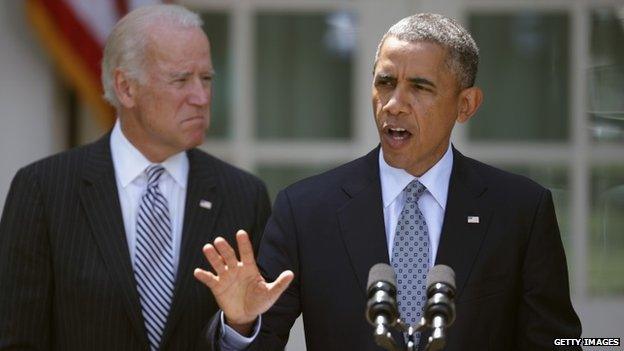
Barack Obama has said he will use his powers as president to deal with immigration, blaming inaction on the larger issue on Congress
The administration has ramped up a public outreach campaign to discourage would-be migrants from attempting the journey north.
Mr Obama has pledged to shift resources towards the southern border, which would mean more deportation of those who have recently crossed the US border illegally or who are considered dangerous, but fewer deportations of undocumented immigrants from the interior of the country.
In addition to the transfer of manpower south, Mr Obama said he was directing the secretary of homeland security and the US attorney general to come up with recommendations about what he could do within his presidential powers to improve the US immigration system.
Those recommendations are expected to be delivered by the end of summer.
The White House also requested $3.7bn (£2.6bn) in funding for extra immigration judges, drone surveillance of the border, medical services and transportation costs.
Congressional Republicans later said they would not give Mr Obama a "blank cheque" to combat an immigration crisis without additional policy changes.
Complicating matters, a 2008 anti-human trafficking law signed by President George Bush prevents the US from returning children who are not from Mexico and Canada to their home countries without a deportation hearing.
The large majority of the children detained in the past few months are not from those countries, and the Obama administration says it wants more flexibility to deport them swiftly.
Two Texas politicians have announced plans to introduce a bipartisan bill to modify the law to treat undocumented children from Central America like those who hail from Mexico.

Is it enough?
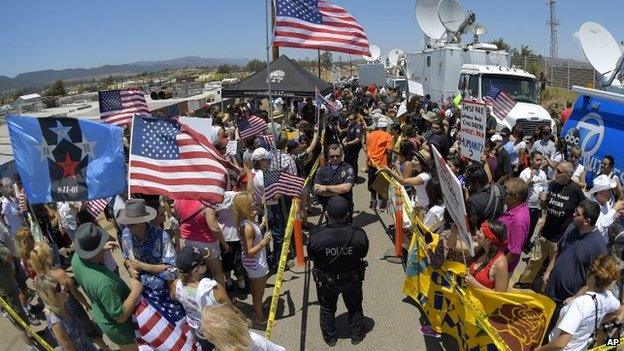
Protesters from opposing sides demostrate outside a US Border Patrol station in Murrieta on 4 July 2014
It is too early to tell if the Obama administration's public outreach campaign is having an effect.
Mr Johnson has said the increased border resources have begun to help lessen the strain but the that the administration was "looking at ways to create additional options for dealing with the children in particular".
But the immediate response has frustrated residents along the border.
Last week, people shouting slogans and waving US flags blocked three buses carrying undocumented Central American families to a border patrol station in Murrieta, California.
The migrants had been flown to San Diego from Texas, where facilities report overcrowding after a surge in arrivals. Protesters blamed the US government for not "enforcing the border".
Republicans have blamed Mr Obama for not doing more to prevent an immigration crisis, but the US president has argued Republicans have blocked any immigration reform in Congress.
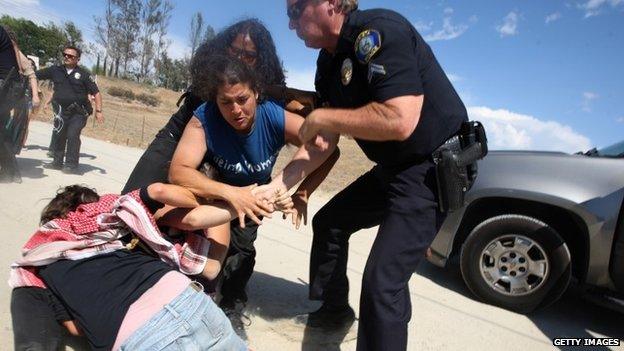
Counter demonstrators clash with police as protests continue against arrival of buses carrying women and children migrants in Murietta, California